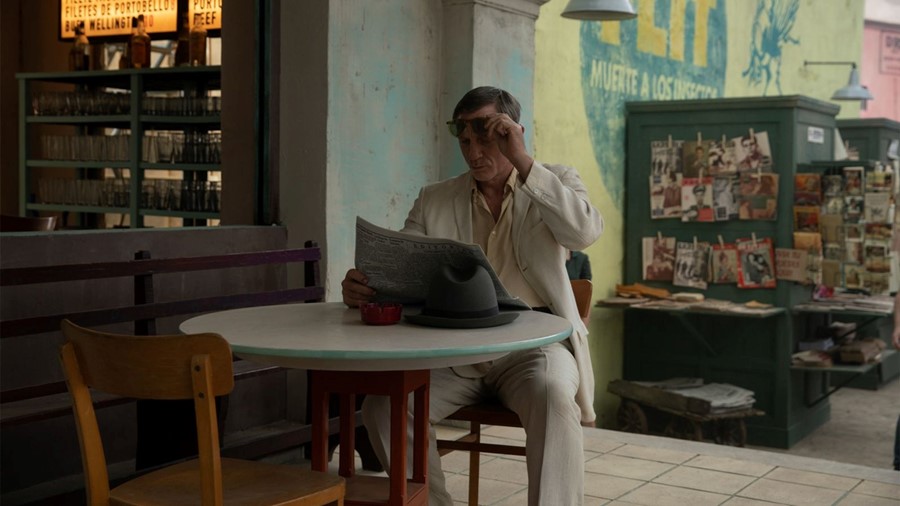A surprising turn from Daniel Craig anchors this hallucinatory drama, premiered at this year’s Venice Film Festival
Even before its release, much of the discourse around Luca Guadagnino’s adaptation of William S Burroughs’ Queer revolved around its sex scenes: their potential explicitness, their supposed primality. In reality, however, the Italian auteur’s latest film features just two full-frontal scenes and not a whole lot of actual sex. Those expecting the rampant bacchanal horniness of Challengers will also be disappointed; where his last film revelled in the destructive exhilaration of unchecked lust and the fertile ambiguity of homoerotic tension, Queer takes these component parts and transforms them into a different beast entirely – a little softer, a little more slant. Desire rather than sex is the subject here; even in its most unrequited, unconsummated form it radiates off the screen.
The desire belongs to William Lee, an American expat living in Mexico City in the 1950s, played with sweet seediness by the ever-surprising Daniel Craig. Lee spends his days bouncing from bar to bar, knocking back mezcal and trying – and often failing – to pick up men. He is unabashedly queer; the word and its shifting goalposts of meaning – from the 50s when the story is set, to the 80s when Burroughs wrote it, to the present moment of the film’s making – a palimpsestic cipher into Lee’s tumultuous lived experience. And when he meets the young and handsome Eugene Allerton, played by relative newcomer Drew Starkey, Lee is – in the way of the best and worst of crushes – utterly obliterated.
Lee isn’t sure if Eugene is queer, a question that haunts him through the heat-cracked streets of Mexico City onto the sweaty jungles of South America where the two end up travelling. And while Lee really, really needs Eugene to like him back, Guadagnino is in his element tracing the limits of Lee’s anxieties and cravings. It may take two to tango but it only takes one to yearn: there’s a trembling, wanton vulnerability to Lee’s near-constant, schoolgirlish gaze on Eugene, the caught breath after the initial touch, the shake of his hands when Eugene unbuckles his trousers.
It may not quite be the chaos of Challengers, but Queer’s exploration of gay desire is nothing like the golden-hour romance of Call Me By Your Name, either. Lee’s so-called proclivities don’t just include men but a great deal of heroin and cocaine too, and when ayahuasca is thrown into the mix, Guadagnino’s film becomes his trippiest and most playful yet. Increasingly surreal dreamscapes are thrown up throughout the film, elasticities of time and place and bodies rendering Lee simultaneously more together and more alone than he has ever been. True to the rest of Guadagnino’s back catalogue, Queer recognises that desire and loneliness are just two sides of the same coin: no amount of hedonism can mask Lee’s melancholic freefall into heartbreak. After all, as one especially hallucinatory scene tells us, what is desire but the feeling of trying to break beneath someone’s ribs and live under their skin. And what is loneliness but the crush of reality when you realise that you never can.
